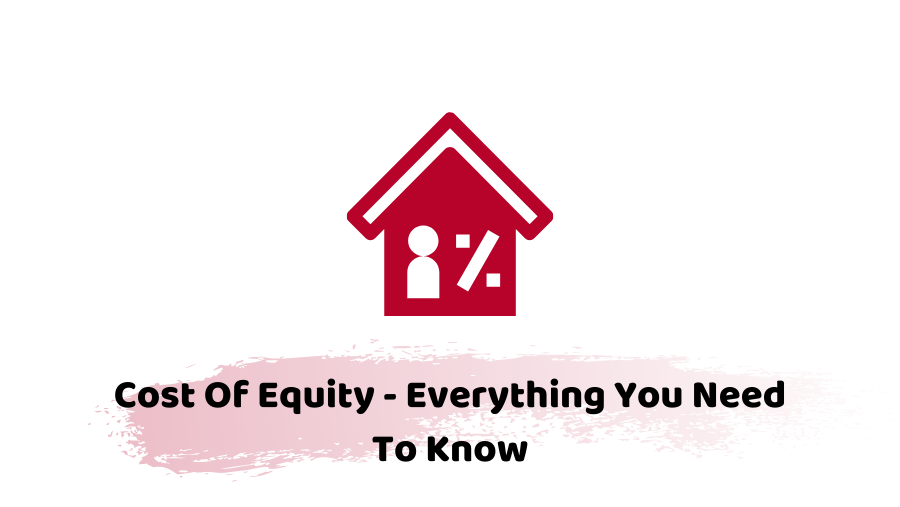In Simple Words, the Cost Of Equity is Compensation that the Investors expect from the risk they have taken to Invest In Your Company.
As a businessman, it is very helpful to figure out Cost Of Equity. This will be a great help while you are seeking for investors to invest in your company, they can ask for it to decide whether it will be beneficial for them to invest in your company or not.
Finding the right investors for your business can be beyond advantageous to flourish the future of your business as it helps in funding, ideas and plans. In this post we will focus on:
- How to define Cost of Equity?
- How is Cost Of Equity Important?
- How to Calculate?
Seeking Guide on Capital Gains for your Business, contact our Accountants. They have some of the unique ideas to add swift value to your business.
How To Define Cost Of Equity?
Shareholders or the investors who intend to invest in your business seek the rate of returns. The cost of equity is often taken as the compensation that the investors look forward to in return for the risk they take to invest in your business. Some of the basic components to understand the cost of equity are listed below:
- Rate of return
- Description of equity
Rate Of Return:
The rate of return is the smaller rate that an investor expects to get in reward of the investment that he intends to make in your business. It may vary depending on the rate of risk or the amount of investment. In other words, the required rate of return is called the hurdle rate as well.
Description Of Equity:
The difference between an asset’s value and liabilities is known as equity. It is the amount of money that will be returned after the debts and other necessary payments are made.
Our Investor Accountants handle finance and tax-related streams for your business, save your energies and reach out to Accotax for instant help!
How Is Cost Of Equity Important?
It is very important to have details of the cost of equity for stock valuation. An investor expects an increase by cost of equity when he is making an investment. It will further help to determine the value of equity investments.
In case you are a business owner, you will surely wish the cost of equity to be appealing for the potential investors. This will be advantageous for the investors as well as the owner. The cost of equity will be higher if the potential investors are convinced to take the higher risks.
How To Calculate?
It is important to understand how the cost of equity works in order to calculate. Mainly there are two methods to calculate that are commonly used.
- Dividend Discount Model
- Capital Asset Pricing Model
Here is the detail of mentioned models and how they are being used to calculate.
- Capital Discount Model: The need to figure out the value of stock
dividend requires this method. While selecting the stocks, this model is used by several investors. Due to the involvement of dividend as many companies do not pay dividends. However, it is not always the suitable option to calculate the cost of equity.
It is required to divide the yearly dividends by the existing price of one share and then add the growth rate. Some components to focus while using the capital discount model.
- Dividends
- Growth rate
- Current share price
- Capital Asset Pricing Model: Knowing the fact that there are non dividend stocks as well, capital assets pricing model is used as the alternative of capital discount model. The formula to calculate is more complex than that of the capital discount model but it is more accurate as well. Here is the formula to calculate:
Ra = Rrf + [Ba ∗ (Rm−Rrf)]
Here:
- Ra is cost of equity
- Rrf is rate of return
- Ba is beta of investment
- Rm is market rate of return
Conclusion:
We hope this post helps you for a better understanding of cost of equity and now that you know how to calculate it, figure out the suitable method for your business and make it appealing for the potential investors to grow your business value even more.
Still confused to choose the best option to calculate for your business, our Accountants are available to offer a swift guide.





















































